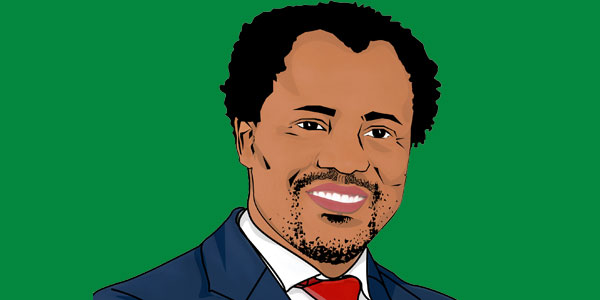Green Cross needed to halt the climate emergency
- Zeblon Vilakazi
EDITORIAL: We do not have a choice. It is incumbent on each of us to tackle the #ClimateEmergency.

Climate emergency has been declared the “word of the year” for 2019 by Oxford Dictionaries, based on increased use of the term globally. We are in an environmental crisis and it may be too late to completely reverse the effects of climate change.
The climate crisis is an emergency and deserves the highest priority by individuals, cities, governments, corporates, civil society, the media and universities. Each one of us needs to own the climate emergency and act daily – we have the agency and the power to effect real change and to impact society now and for the benefit of future generations.
As a leading university in Africa, Wits must lead by example and use its influence to transform society through its leadership, education, and research. The Talloires Declaration of 1990 – the first official statement made by university leaders of a commitment to environmental sustainability in higher education – recognises this responsibility. The statement raises concern “about the unprecedented scale and speed of environmental pollution and degradation, and the depletion of natural resources”. Universities have a significant role to play in achieving sustainable outcomes that benefit everyone.
Universities can address the climate emergency by prioritising sustainability and climate change through interdisciplinary research – the Wits Global Change Institute, with input from various faculties, leads in this respect; through empowering students, staff and individuals to tackle the emergency; through social leadership; and through building green campuses.
We can use our intellectual prowess to develop critical thinkers who are cognisant of the effects of climate change and who can tackle the emergency with fervour. We have an opportunity to provide our communities with graduates who have the knowledge and skills necessary to transform society and to live as responsible local and global citizens. Indeed, many Wits academics, researchers, scholars and social activists are already leading the charge on this front. Our students have just developed a cost-effective, modular-based solar energy kit that reduces e-waste, and which can be used in un-serviced and under-serviced communities.
Wits is also reimagining its physical and digital infrastructure to reduce its environmental impact, for example, through adopting an energy efficiency strategy that includes the use of renewable energy, and through the introduction of new online digital offerings. Recently, Wits implemented efficiency programmes that include rooftop solar PV installations; green buildings; building management systems; indoor lighting retrofits; sustainable hot water systems for residences; water, storm water and waste water assessments; food security; transport systems; green procurement policies; and effective land and waste management systems.
In short, we do not have a choice. It is incumbent on each of us to tackle the climate emergency. This GREEN issue of Curios.ty features questions, challenges, issues – and some of the answers – about how we can map a sustainable way forward. Please share your #ClimateEmergency thoughts with me via curiosity@wits.ac.za.
- Professor Zeblon Vilakazi is the?Deputy Vice-Chancellor: Research and Postgraduate Affairs?at?Wits University.
- This article first appeared in?Curiosity, a research magazine produced by?Wits Communications?and the?Research Office.?
- Read more in the ninth issue, themed: #ClimateEmergency how our researchers investigate the impact and implications of global change and climate change on people, places, and politics.
